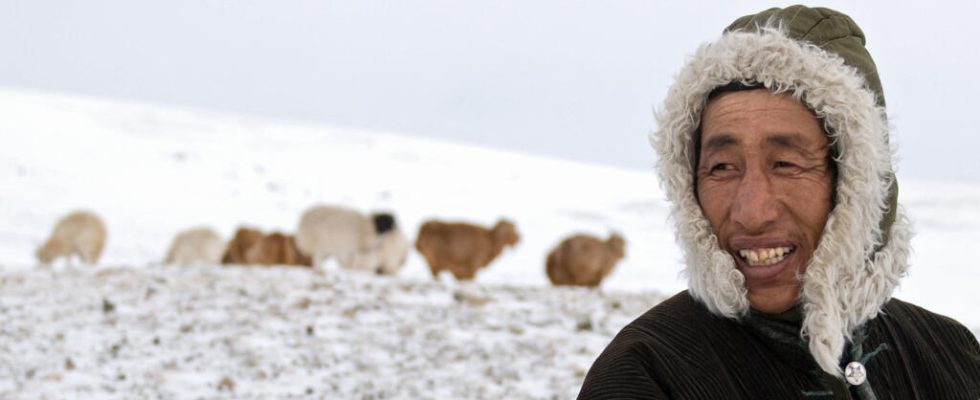For the second year in a row, Mongolia is currently being hit hard by dzud, a weather phenomenon during which prolonged summer drought is followed by severe winter conditions. The consequences are dramatic, particularly for the population of nomadic herders and their children.
3 mins
Before the effects of climate change become more and more palpable, Mongolia was hit by a major dzud once a decade. But with the acceleration of global warming, their frequency is increasing alarmingly.
It is currently -25 degrees in Mongolia and most of the country is covered in a thick layer of snow. These extreme conditions put a severe test on the herds of nomadic breeders. Livestock were unable to build up enough fat reserves during the summer when severe drought and unusually high temperatures literally burned pastures, preventing ranchers from preparing hay as fodder for the coming months. winter.
“ Since the beginning of December, 60,000 animals have died of cold and hunger », Reports Bayan-Altai Luvsandorj, director of the NGO Save The Children in Mongolia. “ However, almost a third of the population of Mongolia (which has 3.5 million inhabitants, Editor’s note) depends on breeding. The current situation therefore has considerable consequences on daily livelihoods. “.
Livestock, source of income and savings for nomads
For the nomads of Mongolia, livestock represents both savings and the main source of income. Faced with the extreme weather conditions of the dzud, the priority of breeders is therefore to protect their herds. “ All available financial resources are used to save animals », notes Bayan-Altai Luvsandorj. “ As a result, families, especially children, suffer from malnutrition. Blocked by snow, women and their children’s access to care or even medicine is also restricted, if not impossible. “.
Some nomadic families will attempt the impossible: take their herds hundreds of kilometers from their homes in search of plants to feed them. “ In this case, children, especially those of school age, are placed in dormitory schools. The children are, so to speak, neglected. They do not see their parents for several months. This creates deep emotional distress for them. Without protection, some are victims of sexual abuse », Explains the Save the Children representative in Mongolia.
100,000 children
According to the NGO, 100,000 children of nomadic herders are currently affected by the consequences of dzud. To help them, Save the Children and other international organizations finance “ first of all food for their families’ livestock herds, but also hospitals and medical centers which travel to isolated places of winter installations of nomadic communities, or even direct financial aid for families », explains Bayan-Altai Luvsandorj.
The frequency and severity of dzuds increases drastically. It has been two years in a row that this extreme weather phenomenon has hit Mongolia and the fifth in ten years. The country’s government declared a state of emergency and appealed to the international community to support vulnerable populations. In the future, Mongolia’s nomadic herders will need to diversify their sources of income if they want to survive climate change.
Also listenMongolia: nomadic populations and environment in danger
